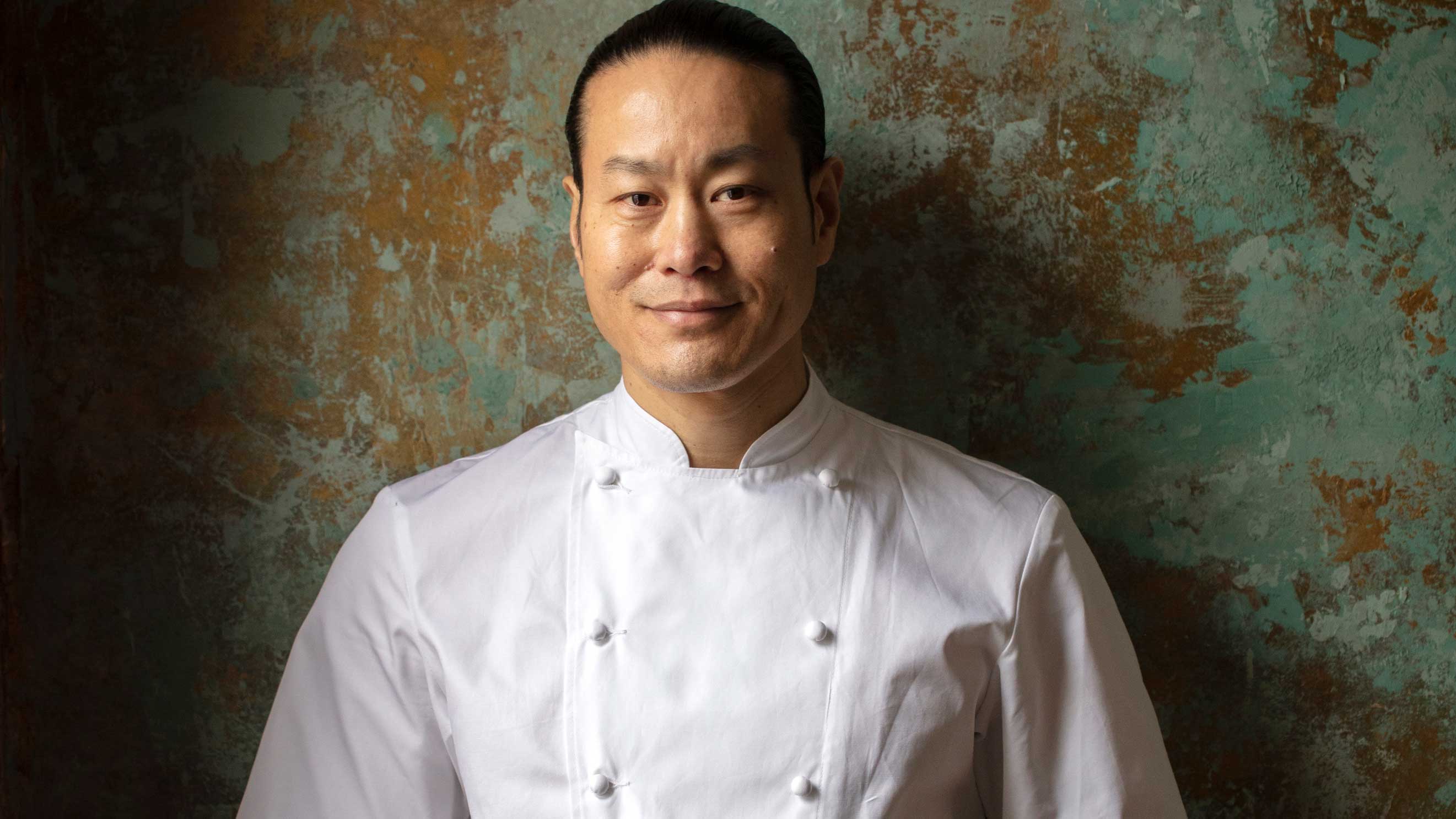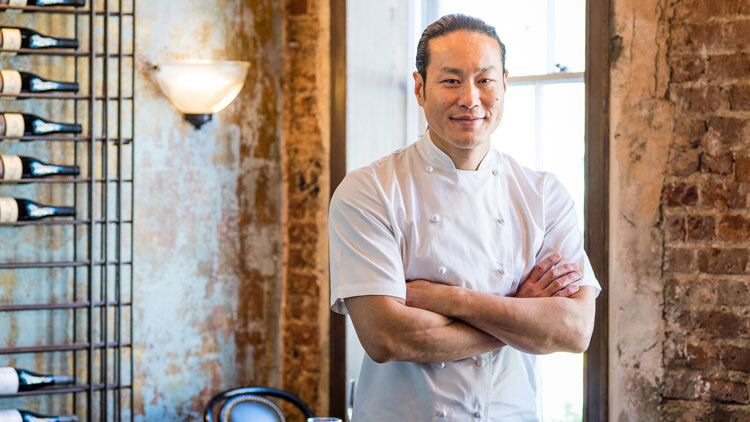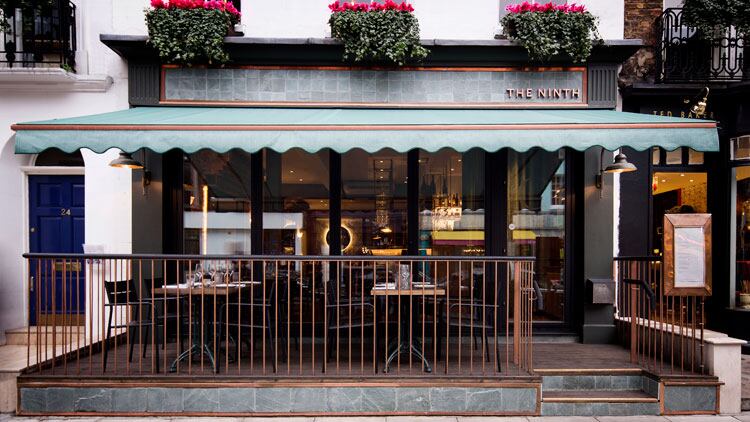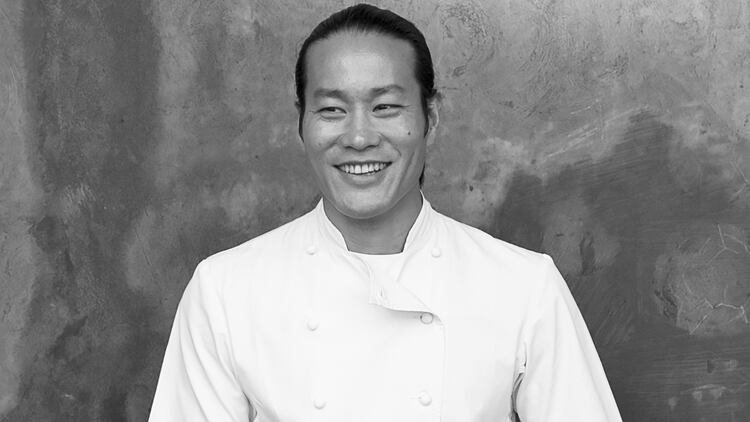When Jun Tanaka launched The Ninth a little under a decade ago, he knew he wanted it to function differently to the restaurants he came up in throughout the 1990s and early 2000s.
While he’s loath to dish the dirt on any one chef – he learnt his craft from the biggest names of the era including the Roux brothers, Nico Ladenis and Marco Pierre White – Tanaka says he “spent many unhappy hours” within elite kitchens that were largely fuelled by intimidation and in which empathy, teamwork and respect were not part of the conversation.
“I worked in seven different Michelin-starred places. With the exception of just one it was all pretty homogenous. I didn’t feel valued or respected and nor, I think, did any of my peers,” he says. “Workplace culture was not part of the conversation, and nobody helped anyone else out.”
Acceptable in the 90s
It’s not news that conditions in high-reaching kitchens were poor during this period. But for a chef of Tanaka’s level – his Fitzrovia restaurant has held a Michelin star since 2016 – to call it out is unusual. Chefs of roughly his vintage – he is 51 – tend to put a macho spin on things, often opining that such conditions bred better and hardier cooks.
While Tanaka acknowledges that these uncompromising pressure cooker environments taught him resilience, he believes it came at an unacceptable cost and was ultimately counterproductive.
“When you work in an environment in which you are fearful of the consequences of making a mistake and those that are your senior all you can think about is self-preservation,” he says. “You become selfish.”
More worrying still, the constant barrage of verbal abuse he says he faced caused him to become detached. “That’s the only way anyone can get through that sort of abuse. You have to turn yourself off, which eventually leads to not caring about your colleagues or the business you are employed by.”
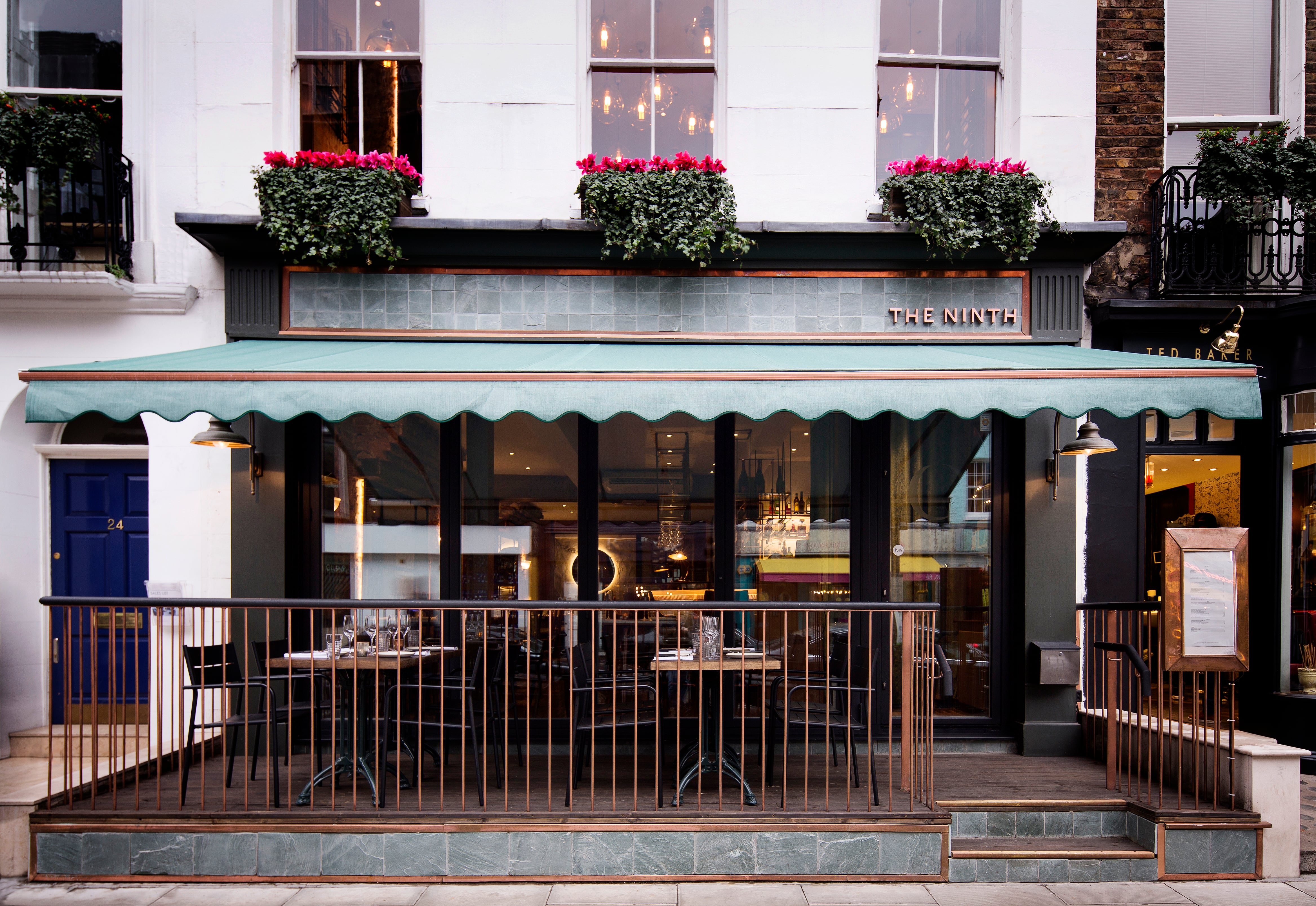
Words to live by
Tanaka set The Ninth up with four former colleagues that had also paid their dues in tough kitchens. Shortly after acquiring the five-storey Charlotte Street townhouse the fivesome met to discuss what the restaurant would be.
“We were completely aligned in our aim to create a positive working environment by prioritising the team,” he says. “Often restaurants put so much time and care into the food, the service and the ambiance that the culture becomes an afterthought. We were determined not to do that.”
While Tanaka isn’t claiming to have gotten everything right, he does believe that he and his senior team have largely stuck to the original vision of creating a restaurant where the team comes first.
“When we set out, we knew what the aim was, but we didn’t necessarily understand how to get there,” he says.
As The Ninth gears up to celebrate its 10th birthday, Tanaka has penned a 3,000-word manifesto that outlines the principles that inform the culture at the restaurant (see extracts, below). Central to it is a focus on integrity, trust, mutual respect, teamwork and personal growth.
“We want every member of our team to find fulfilment in their work and be inspired. These are the pillars on which we build our restaurant culture,” the introduction reads.
Tanaka is by no means the only restaurant operator to seek to run his business in a progressive manner. Working conditions have improved dramatically over the past decade or so. But he is among the first to look to distil his approach and share it more widely. The hope is that The Ninth alumni will take the manifesto with them when they leave.
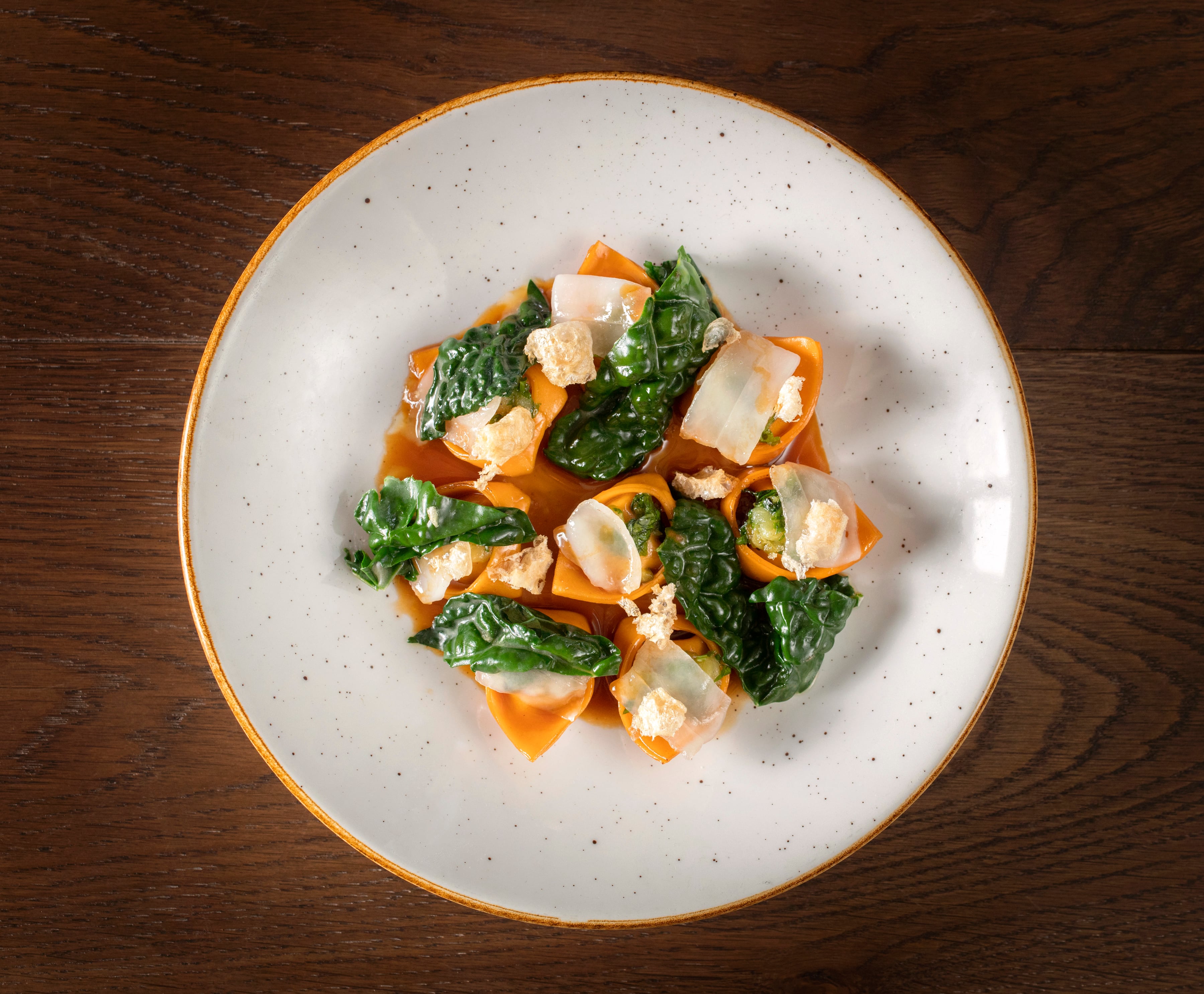
Putting pen to paper
The Ninth’s manifesto was put together over the course of about a year, with the fire that closed the restaurant for nine months shortly after the pandemic giving Tanaka the space he needed to finally get it over the line.
“I’ve been meaning to write it for years, but I found it hard to put pen to paper. Culture is intangible. It’s values, beliefs and behaviours. Distilling it all has been a challenge.”
The first draft didn’t go down so well with the restaurant’s senior team, and a few select industry contacts, however. “The content was okay, but the tone was pretentious, Tanaka admits. “That was disappointing, so I took a bit of a break from it and then rewrote it with the help of a copywriter.”
Split into around a dozen sections including Finding the right people, Making the team feel valued and Sharing feedback, the manifesto is given to all team members during their induction. “It’s a useful guide to keep us all on track but at the end of the day it’s just a document. The most important thing is our actions at work. Much like cooking, it’s a continual learning process.”
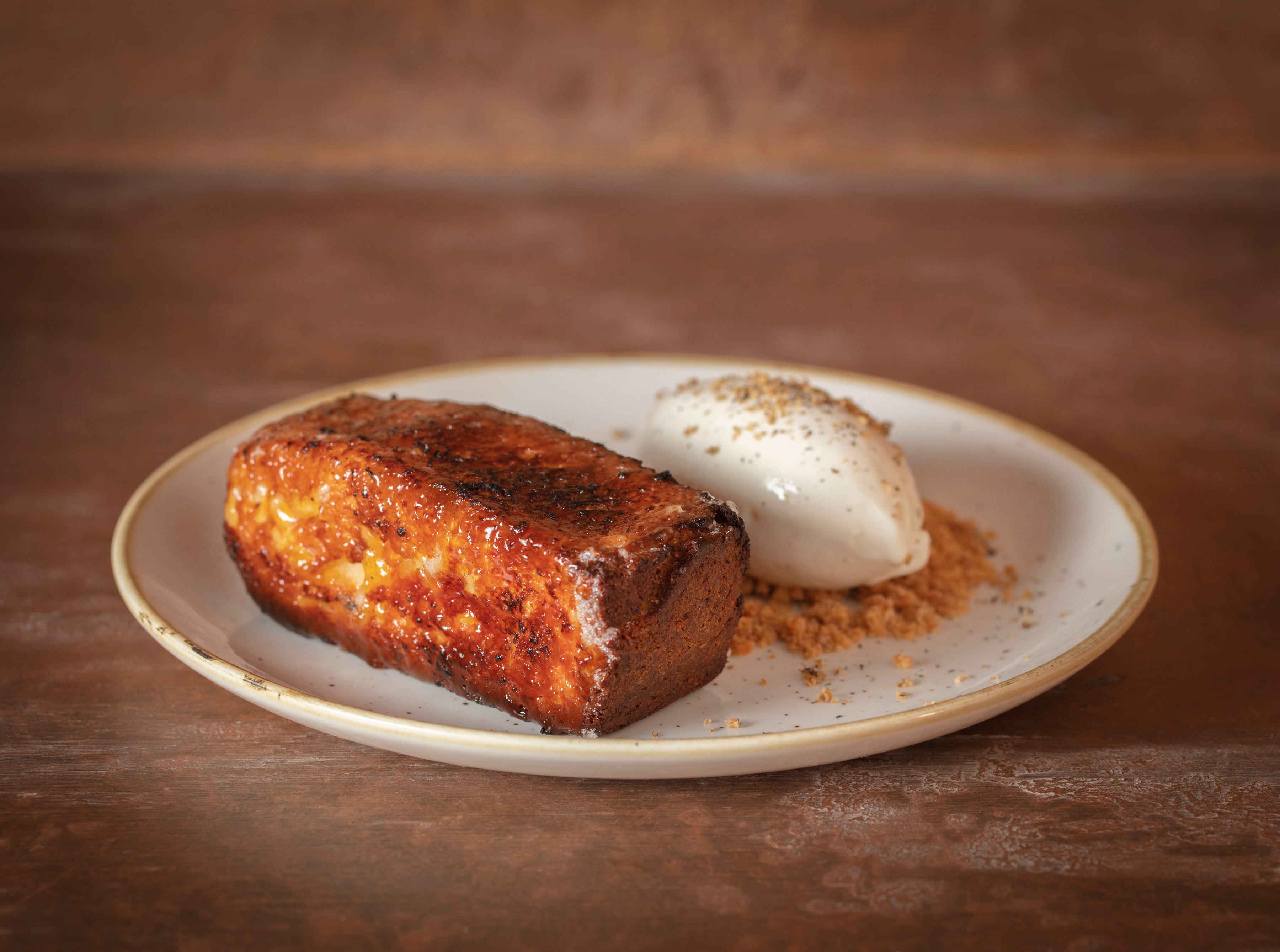
Three extracts from Jun Takana’s Culture Manifesto
Small gestures have a big impact
Every daily interaction with fellow team members affects how we feel about ourselves and our work. How we speak to each other really matters. We greet everyone at the start of a shift and say goodbye when we leave. This seems obvious but it has a significant impact.
Everyone likes to feel noticed and appreciated. Even when working under pressure, we say please and thank you. We all work hard and it’s important to be acknowledged. As a team, it’s important that we listen to and respect everyone’s opinions.
To encourage the junior team members to develop confidence in expressing their opinions, the leader aims to be the last to speak. This also helps us learn from each other. All of us have lives outside work with different interests, responsibilities, challenges and dreams. We take a genuine interest in each other’s lives and regularly check in with each other. Understanding our team as individuals helps us all work better together.
We acknowledge that mistakes happen to everyone. Regardless of position, it’s important that we admit mistakes, apologise and learn from the experience. We don’t speak negatively about others behind their backs. Instead, we give feedback directly and with respect.
Communication is key
We believe you cannot communicate too much. Open, honest and regular communication allows us to better work together and support each other to succeed. We have a kitchen briefing at 8.45am - we go through the week’s covers, the VIPs and parties for the coming week. We share the positive and negative feedback from guests. We discuss any maintenance or supplier issues. If we have a trial organised, we share their name and position they are applying for. We discuss any changes to the menu.
At 5.15pm we have a meeting with the front of house team where we share the same information. By doing this daily, the whole team are fully aware of everything that is going on within the restaurant. The kitchen and front of house teams hold a joint meeting at least once a week.
This helps develop a one team mindset and helps avoid errors in communication. We ensure that the leadership team all demonstrate tasks in the same way and share the same information with the team. This includes recipes, plating up dishes and standard operating procedures. If we are not aligned, this will cause confusion which can lead to dissatisfaction.
Our leadership team meets every week to discuss recruitment, training, areas of improvement and new ideas. We share the daily revenue and monthly profit and loss figures with the entire team. We go through food and drink costs and discuss the restaurant’s financial performance. This gives the team a sense of ownership and a better understanding of the bigger picture.
We use an App that all the team can access to share information. We share the rota, recipes, maintenance callouts, trials that have been arranged and pre orders. This helps to reduce miscommunication and the need to repeat the same information. We have our vision statement laminated and displayed on all the back of house areas.
The importance of personal growth
Personal growth is essential for a fulfilling career. We care deeply about the goals and aspirations of each team member and want everyone to feel valued and supported as they work towards achieving their goals. We want every team member to feel they are constantly growing and improving their skills. Every team member has their own personal growth plan.
We take time to create and develop meaningful goals with each team member. We meet every 4 months to review their goals, make sure they are on track, and revise their goals. This is also an opportunity to share feedback and to find out how they are doing. We spend extra time and attention training new team members. They spend their first two weeks working side by side with an experienced team member.
We understand that learning a new job can be very daunting and we want each person to feel supported. We catch up after the first week to check in and help solve any initial issues and do the same after a month and three months in the role. We aim to help with any issues before they become a bigger problem, and let people know that their concerns will always be listened to. Every three weeks, we organise a wine training session for the front of house team.
We take the time to teach the team members properly. First, we demonstrate a task clearly, then allow the team member to perform the task under supervision with support and encouragement. The team member will then perform the task by themselves with the team leader checking their work afterwards and giving feedback and support when necessary. We practice Kaizen – a culture of continuous improvement.
Every team member knows their job better than anyone else and we want to know where we can improve. So, we ask our team members three questions. What issue have you identified? Why is this an issue? and lastly what is your solution? This gives every team member the ownership of solving the issue that they have identified. This also gives a feeling that every person has a voice.


